[ad_1]
A number of seasonal specialties have been arriving within the final remaining patches of wetland on the southwest finish of the cigar-shaped island of Tobago right here within the southern Caribbean. Being based mostly on this island for the higher a part of this yr has afforded me the chance (for the primary time) to bear witness to the motion of our bodies by way of these quarters – and it continues to be exhilarating.
Fall migration is at all times thrilling, however experiencing it in a unique location is a complete new form of feeling. On one hand, there may be an expectation of what’s attainable as a result of I do know what’s supposed to be passing by way of. After which there may be the whole lottery of it, being on a unique island I’m on a steep studying curve concerning the subtleties of the birdlife right here. I’ve been studying about what the birds I’m accustomed to seeing occupy themselves with because the months cross by. So for migration – I’m as wide-eyed as they get.
Though we’ve got been seeing shorebirds for some time now (and an infuriating Northern Waterthrush close to to the place we’re staying who refuses to have its image taken), the uptick in uncommonly seen species started in late October with three Bobolinks. In response to the distribution map, their migration takes them as far south as Argentina, however decidedly much less frequent in central and japanese South America. I’ve seen them many instances on Trinidad however they’re much rarer on Tobago.
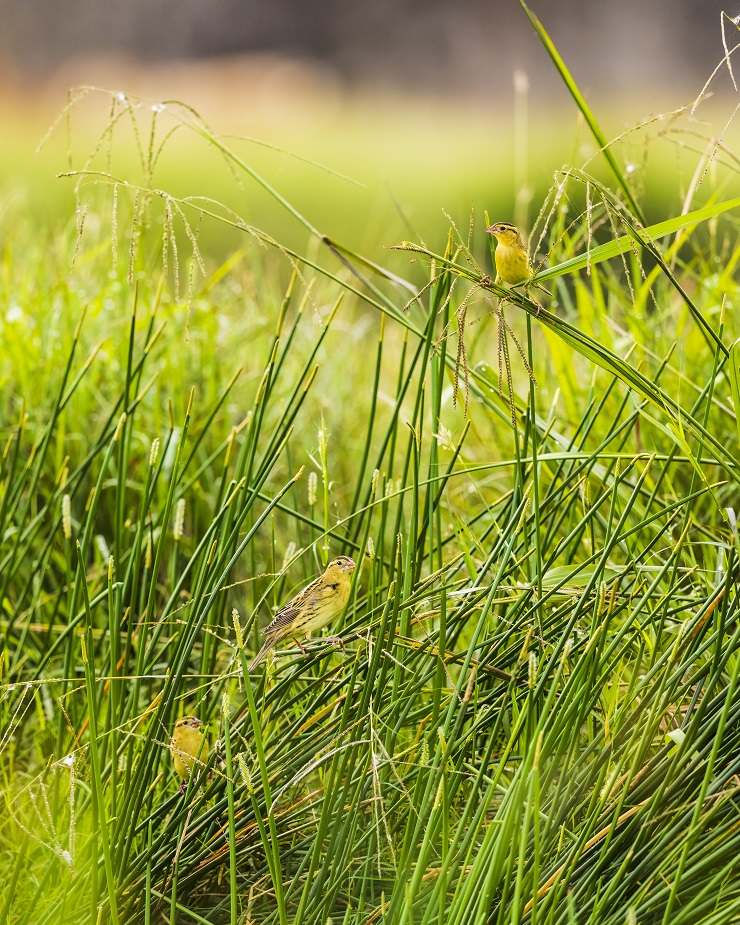
Bobolink
On the identical morning after we noticed the Bobolinks, I tried to have breakfast parked up in one other marsh. I used to be unable to even get midway by way of my oatmeal after I observed a pair of warblers feeding on some overhanging vegetation. They had been yellow, however not that yellow. The one time I had seen Blackpoll Warblers beforehand was one forty ft overhead that I almost burned my eyes out making an attempt to discern leg shade. So the reality is – I wasn’t actually certain if I had seen this species earlier than or not. However on this morning – it was plain.
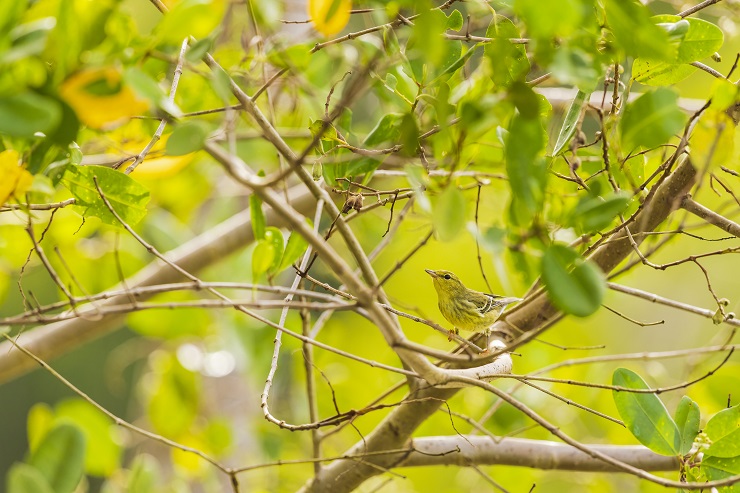
This eye-level Blackpoll Warbler was the primary of many sightings of this species I’d get pleasure from within the coming weeks.
Whereas making an attempt to trace these warblers I observed a pair Tropical Mockingbirds shifting by way of the cover. A pair flew from one tree to a different, their lengthy, gray and white tails would fan out as they had been about to land. As I loved this, one other, long-tailed hen appeared to observe their route from one tree to a different. This one, nonetheless, was brown. And had conspicuous white spots on the finish of its tail.
As shortly as I might with out breaking character (extra on that on one other discussion board) I scrambled to get a transparent view of this hen. It was positively a cuckoo, however which one? At first I assumed lastly I’m gonna nail a Mangrove Cuckoo – however as soon as I noticed it once more I knew it was not; it was a stunningly lovely Yellow-billed Cuckoo. The one different time I had seen this species was additionally in Tobago – additionally whereas making an attempt to eat – however that one disappeared comparatively shortly. This time, I used to be in a position to spend about ten minutes with this hen, carefully observing it because it hunted from department to department, from tree to tree.
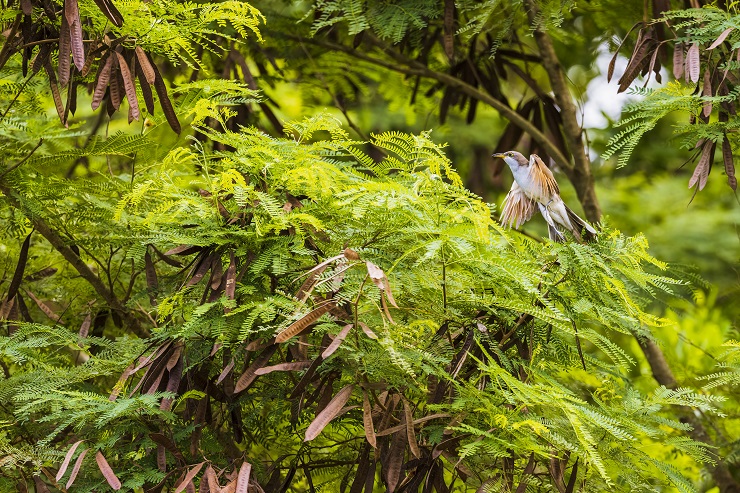
Yellow-billed Cuckoo
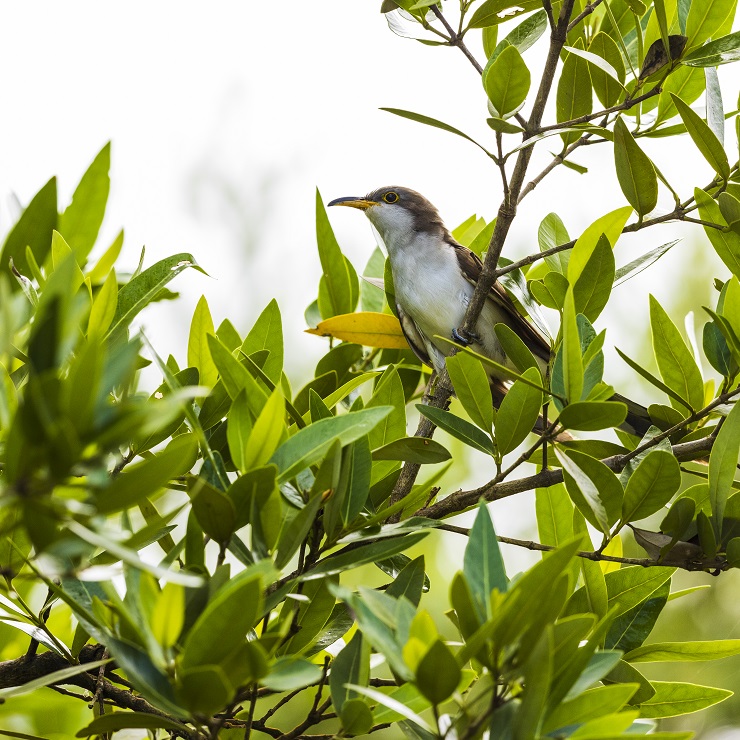
I’m in love.
On one other go to, we continued to get pleasure from wonderful views of the pair of Blackpoll Warblers, this time there was one other pair of warblers lighting up the swamp. The unmistakable and extremely distinctive shade of yellow on a Prothonotary Warbler is a literal beacon within the shade.
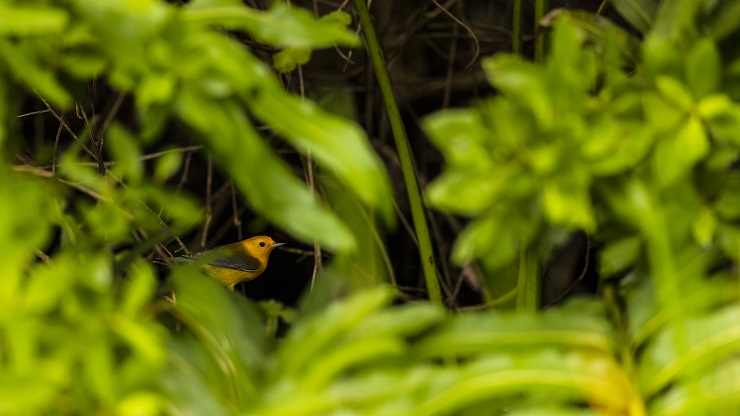
Prothonotary Warbler
A brownish shorebird feeding alongside some Lesser Yellowlegs caught my eye, I checked out it with binoculars by way of the windshield and instantly referred to as it as a Buff-breasted Sandpiper. I photographed it briefly earlier than it flew away and drove house, because it was already late. I despatched out a message on the native hen alert. The next morning I despatched out footage of the again of my digital camera, and a keen-eyed birder responded with a “What is that this?” – I instantly appeared on the image once more and did the traditional double take I grew up seeing in cartoons – the hen was no buffy, it was a Ruff.
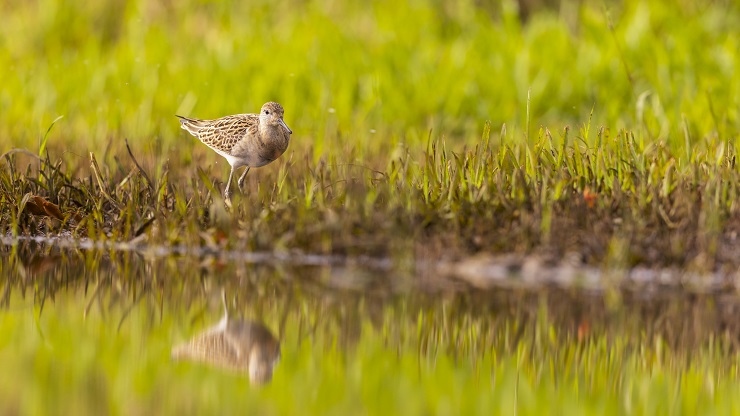
This Ruff flew throughout the Atlantic to get right here.
The newest uncommon suspect we noticed on one other morning was a Hudsonian Godwit being harassed by two Willets. The truth is, it was the ruckus of the Willet pair flanking this hen that made me flip round to see the Hudsonian Godwit wanting moderately bewildered within the center. That argument didn’t final lengthy, nonetheless, and silence quickly returned to the marsh.
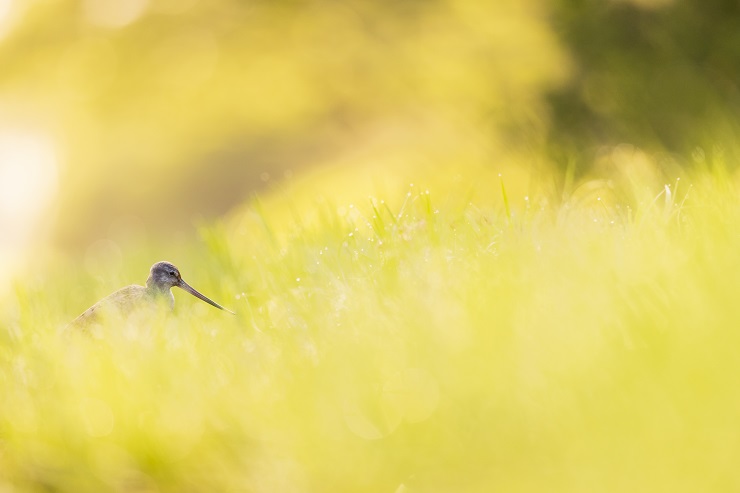
Hudsonian Godwit
Previous few instances we’ve visited the world since haven’t yielded something out of the strange. I nonetheless benefit from the Willet/Whimbrel supposed friendship, and the seek for a hidden Wilson’s Snipe continues.
[ad_2]
